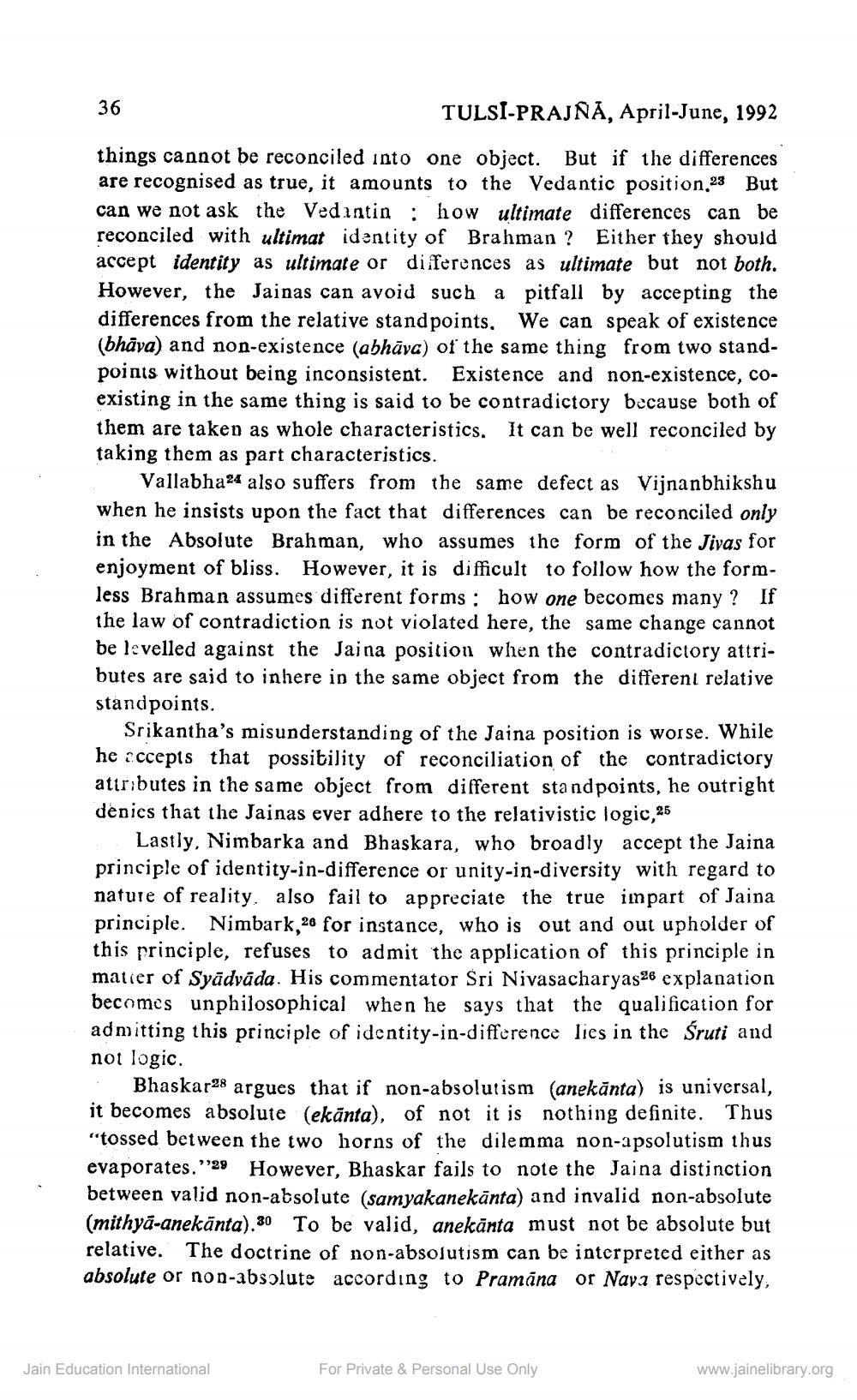________________
36
TULSI-PRAJNA, April-June, 1992
things cannot be reconciled into one object. But if the differences are recognised as true, it amounts to the Vedantic position,23 But can we not ask the Vedantin : how ultimate differences can be reconciled with ultimat identity of Brahman ? Either they should accept identity as ultimate or differences as ultimate but not both. However, the Jainas can avoid such a pitfall by accepting the differences from the relative standpoints. We can speak of existence (bhāva) and non-existence (abhāya) of the same thing from two standpoints without being inconsistent. Existence and non-existence, coexisting in the same thing is said to be contradictory because both of them are taken as whole characteristics. It can be well reconciled by taking them as part characteristics.
Vallabha24 also suffers from the same defect as Vijnanbhikshu when he insists upon the fact that differences can be reconciled only in the Absolute Brahman, who assumes the form of the Jiyas for enjoyment of bliss. However, it is difficult to follow how the formless Brahman assumes different forms: how one becomes many ? If the law of contradiction is not violated here, the same change cannot be levelled against the Jaina position when the contradictory attributes are said to inhere in the same object from the different relative standpoints.
Srikantha's misunderstanding of the Jaina position is worse. While he accepts that possibility of reconciliation of the contradictory attributes in the same object from different standpoints, he outright denies that the Jainas ever adhere to the relativistic logic,25
Lastly, Nimbarka and Bhaskara. who broadly accept the Jaina principle of identity-in-difference or unity-in-diversity with regard to nature of reality. also fail to appreciate the true impart of Jaina principle. Nimbark,26 for instance, who is out and out upholder of this principle, refuses to admit the application of this principle in matier of Syādvāda. His commentator Sri Nivasacharyas26 explanation becomes unphilosophical when he says that the qualification for admitting this principle of identity-in-difference lies in the Śruti and not logic.
Bhaskar28 argues that if non-absolutism (anekānta) is universal, it becomes absolute (ekānta), of not it is nothing definite. Thus "tossed between the two horns of the dilemma non-apsolutism thus evaporates.''29 However, Bhaskar fails to note the Jaina distinction between valid non-absolute (samyakanekānta) and invalid non-absolute (mithya-anekānta).30 To be valid, anekānta must not be absolute but relative. The doctrine of non-absolutism can be interpreted either as absolute or non-absolute according to Pramana or Naya respectively,
Jain Education International
For Private & Personal Use Only
www.jainelibrary.org




